The collapse of the Russian rouble
The Russian currency has hit its lowest point since the immediate aftermath of the invasion of Ukraine
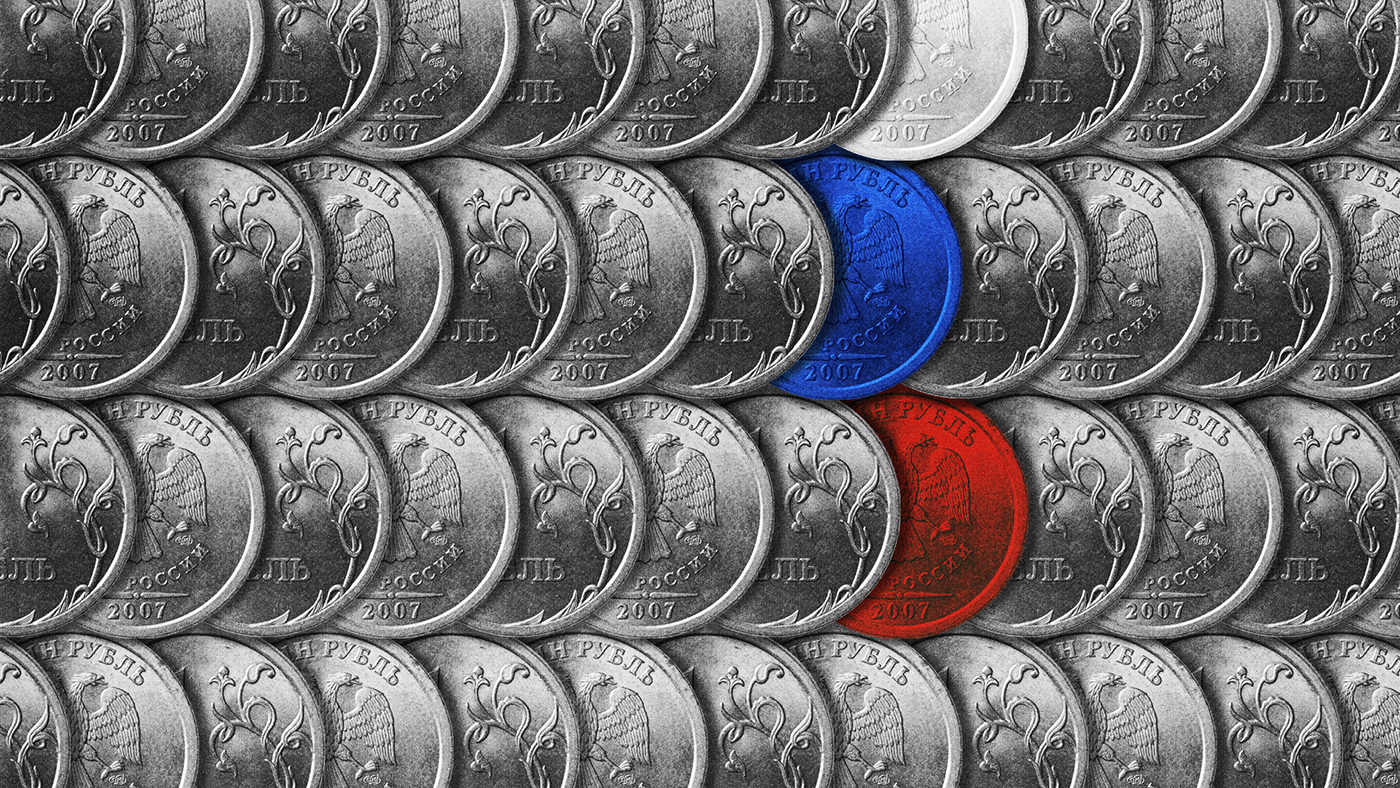
A free daily email with the biggest news stories of the day – and the best features from TheWeek.com
You are now subscribed
Your newsletter sign-up was successful
The Russian rouble has fallen to its lowest value in 16 months, heralding a potential crisis for Vladimir Putin and raising questions about his country’s ability to continue to wage war.
On Monday, the Russian currency passed the rate of 101 to the dollar, making the currency “one of the world’s worst performers this year”, The Economist said, falling slower only than “perennially troublesome peers” including the Argentine peso, Venezuelan bolivar and Turkish lira.
The currency’s plight shows “cracks in Russia’s war economy” said Unherd, “and it appears Russian officials do not have a way out”.
The Week
Escape your echo chamber. Get the facts behind the news, plus analysis from multiple perspectives.

Sign up for The Week's Free Newsletters
From our morning news briefing to a weekly Good News Newsletter, get the best of The Week delivered directly to your inbox.
From our morning news briefing to a weekly Good News Newsletter, get the best of The Week delivered directly to your inbox.
What’s caused the collapse?
The rouble’s trouble began last November, after it became clear what Russia was up against, said Ambrose Evans-Pritchard in The Telegraph: “an unbroken Ukraine able to pack a military punch; a West that was refusing to fracture; and an oil price cap that the Kremlin never thought would happen”.
Tim Ash from Chatham House said that the currency’s devaluation is “the clearest signal yet that the oil price cap and sanctions are working”.
The decline is bad news for the Kremlin, Evans-Pritchard said, given that Russia “now faces a drastic tightening of financial conditions and a currency slide at the same time”.
With the rouble now at its lowest for 16 months “pressure is growing on the Russian economy”, agreed the BBC, though “admittedly, Russia has been here before”.
A free daily email with the biggest news stories of the day – and the best features from TheWeek.com
After the full-scale invasion of Ukraine, the rouble fell but then recovered, prompting Putin to declare at a meeting just over a year ago: “The dollar is clearly faltering, and the rouble is strengthening.”
However, that recovery was effectively “artificially engineered”, the BBC said, given that, according to many economists, rouble exchange rates are now “entirely managed by [Russia’s] Central Bank”.
Can it be stabilised?
Putting a brave face on the trajectory of the rouble, Putin’s economic adviser, Maksim Oreshkin, insisted that the currency’s decline is due to a specific reason that will be easy to control.
Oreshkin blamed the weak rouble on “soft monetary policy”, Russian state news agency TASS reported, but insisted Russia’s Central Bank has “all necessary tools” to stabilise the situation which he said would be “normalising” shortly.
According to Chris Weafer, founding partner of Eurasian consultancy firm Macro-Advisory, what we are witnessing is an active choice on the part of Russian officials, as the country has shifted its economic priorities in recent months.
Last year, Russian economists were attempting to keep the rouble’s value as high as possible, but now they are looking to devalue the currency to balance government spending.
The exchange-rate slide therefore reflects active decisions made by officials rather than a specific sign of an “imminent crisis” or a broader collapse of Russia’s economy, Weafer said.
What would the consequences of a collapse be?
Janis Kluge, a Russian economy expert at the German Institute for International and Security Affairs, agreed that while this decline of the rouble is not a crisis, it will still be “not very welcome” to the Kremlin.
According to Kluge, “this is the closest we [have come] to a real economic problem since the start of the war”.
“Whatever gives the impression of a weak or unstable economy is not welcomed by the Russian government,” he told the Associated Press news agency. “In Russia, the exchange rate is always seen as the most important indicator of the health of the economy”.
The Russian government now faces a stark choice, said The Economist: either it could “cut back on spending, including on its armed forces” or it could force the civilian economy to “take the pain” with rising inflation and higher interest rates hitting ordinary Russians in their pockets.
“Thus the fate of Russia’s economy will not be decided by the judgements of international financiers but by the depths of Mr Putin’s aggression,” the magazine concluded. “It is a far more unhappy situation in which to be trapped”.
Arion McNicoll is a freelance writer at The Week Digital and was previously the UK website’s editor. He has also held senior editorial roles at CNN, The Times and The Sunday Times. Along with his writing work, he co-hosts “Today in History with The Retrospectors”, Rethink Audio’s flagship daily podcast, and is a regular panellist (and occasional stand-in host) on “The Week Unwrapped”. He is also a judge for The Publisher Podcast Awards.
-
 Why is the Trump administration talking about ‘Western civilization’?
Why is the Trump administration talking about ‘Western civilization’?Talking Points Rubio says Europe, US bonded by religion and ancestry
-
 Quentin Deranque: a student’s death energizes the French far right
Quentin Deranque: a student’s death energizes the French far rightIN THE SPOTLIGHT Reactions to the violent killing of an ultraconservative activist offer a glimpse at the culture wars roiling France ahead of next year’s elections
-
 Secured vs. unsecured loans: how do they differ and which is better?
Secured vs. unsecured loans: how do they differ and which is better?the explainer They are distinguished by the level of risk and the inclusion of collateral
-
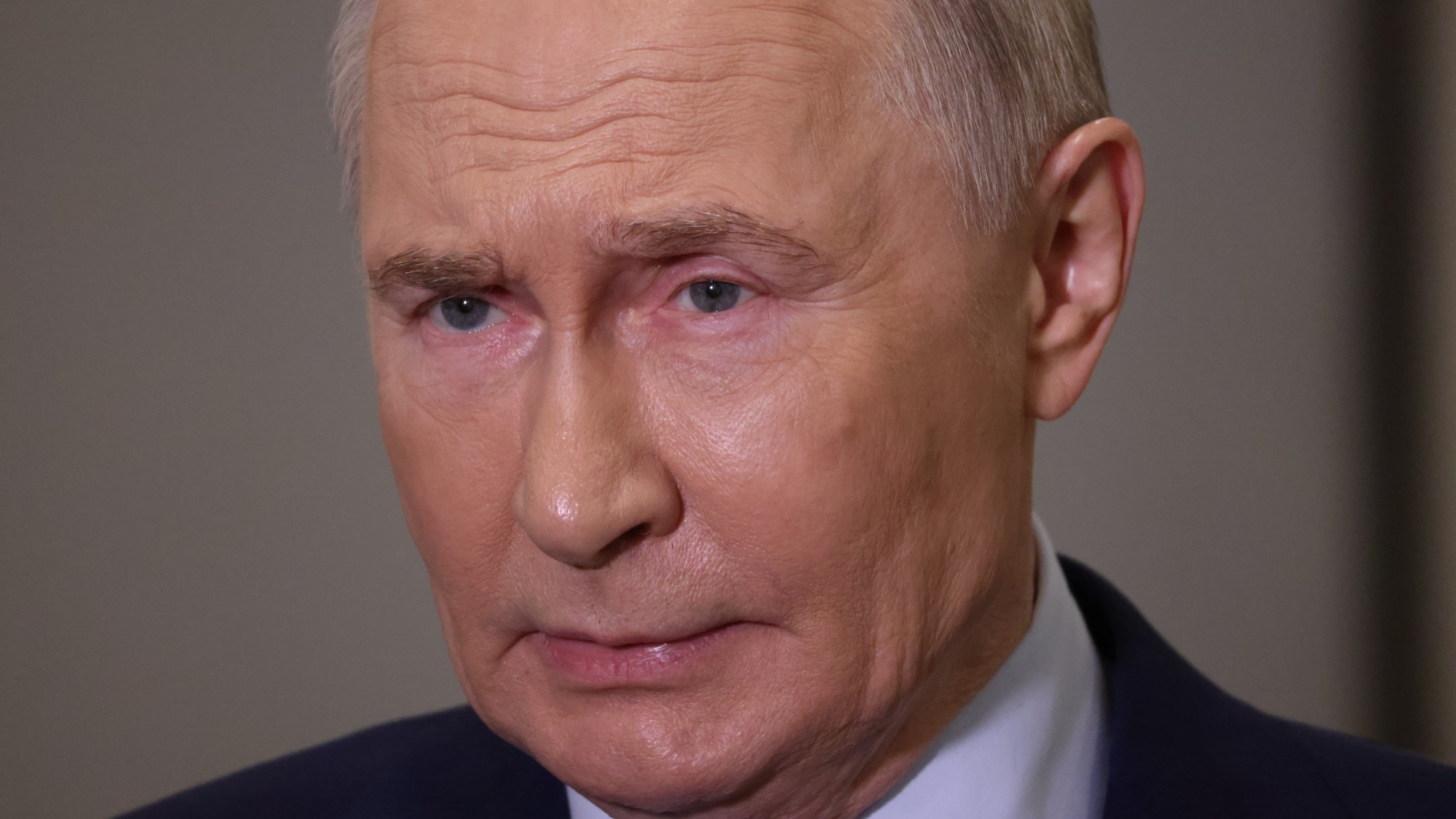 Will latest Russian sanctions finally break Putin’s resolve?
Will latest Russian sanctions finally break Putin’s resolve?Today's Big Question New restrictions have been described as a ‘punch to the gut of Moscow’s war economy’
-
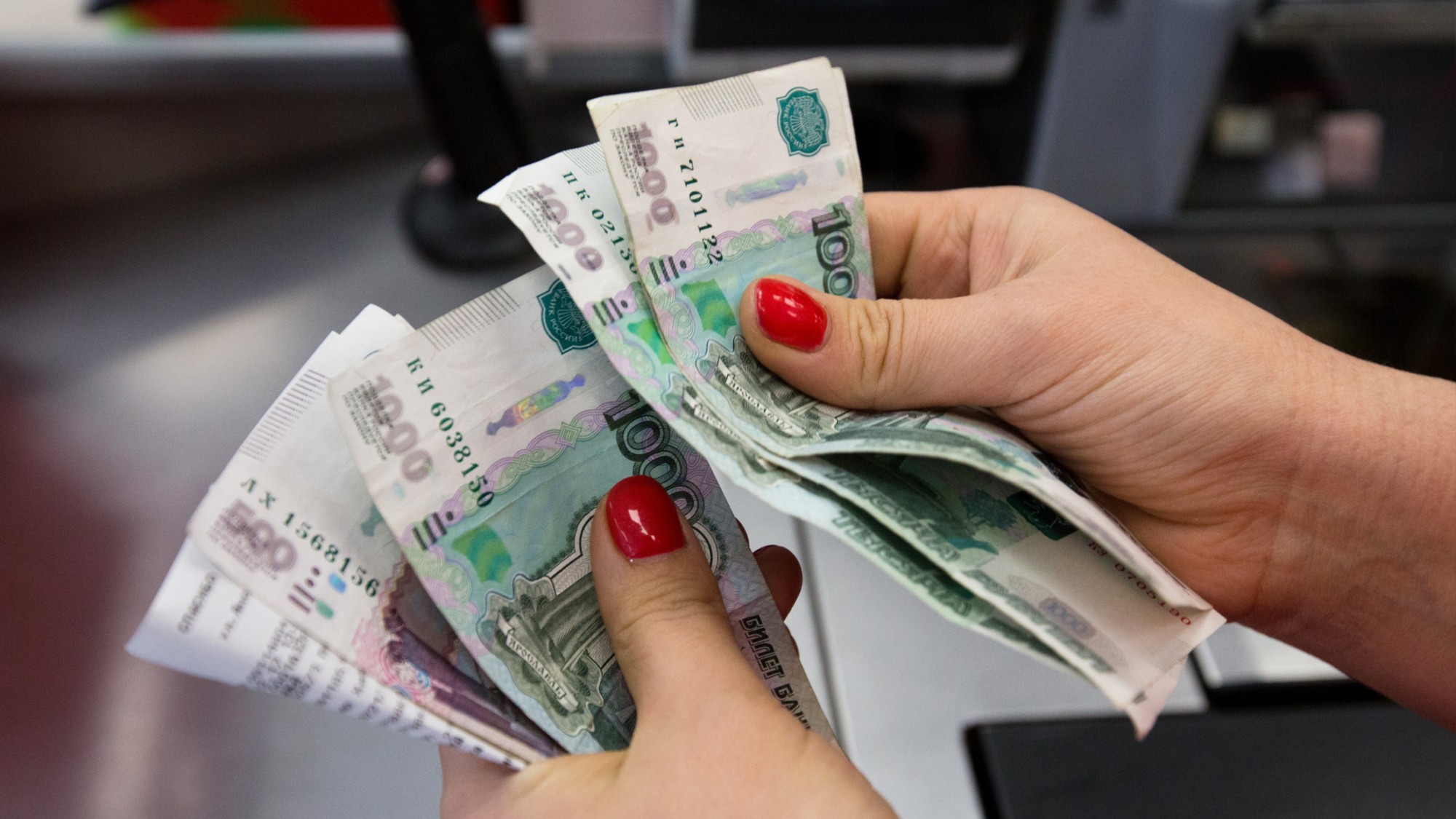 Why has the Russian ruble performed so well this year?
Why has the Russian ruble performed so well this year?Today's Big Question Despite economic malaise, Russia's currency is up 45% on the year
-
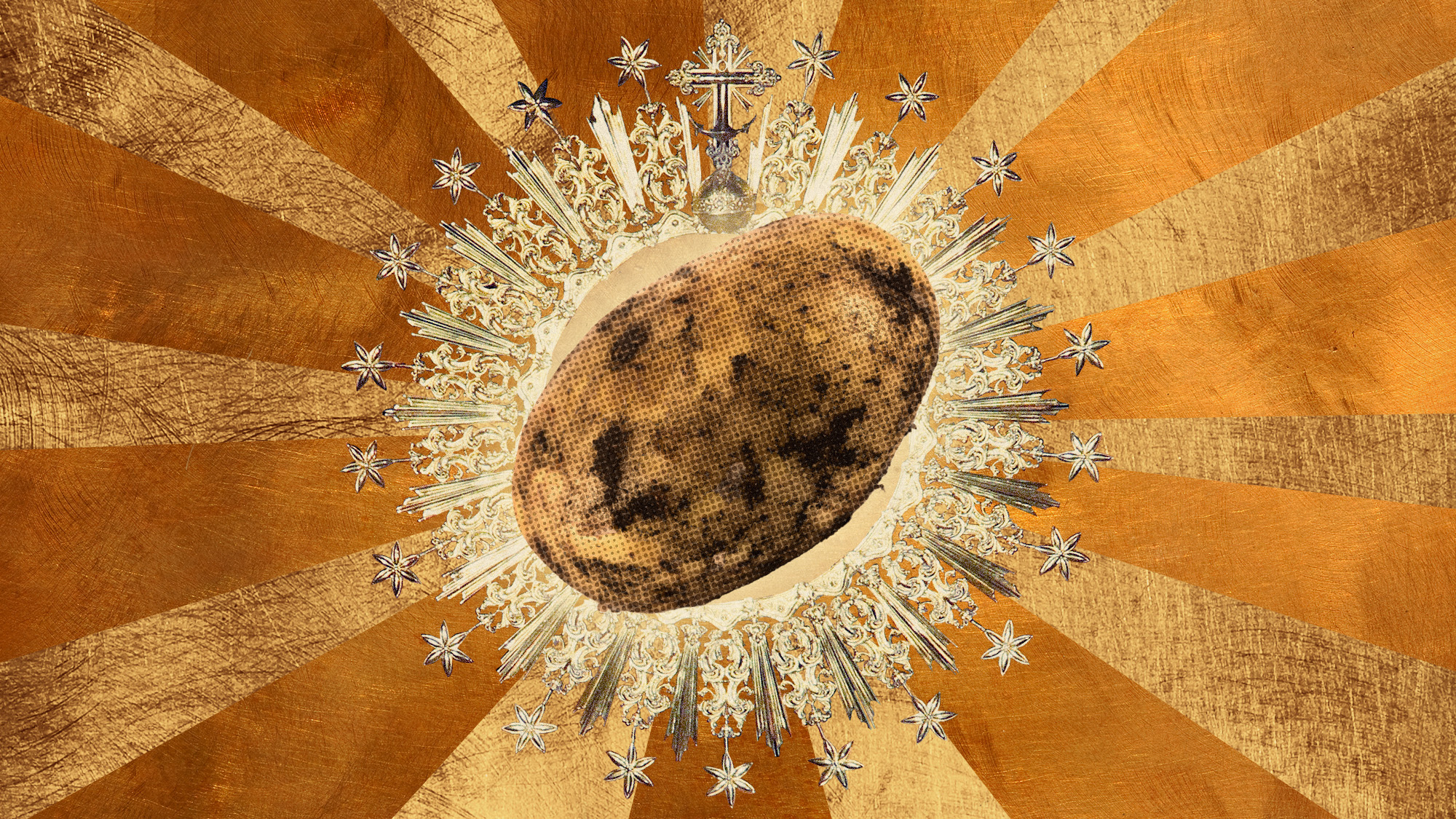 How potatoes became an 'unusual bellwether' in Russia's economy
How potatoes became an 'unusual bellwether' in Russia's economyUnder The Radar Spud shortages are pointing to a wider crisis in the nation's finances
-
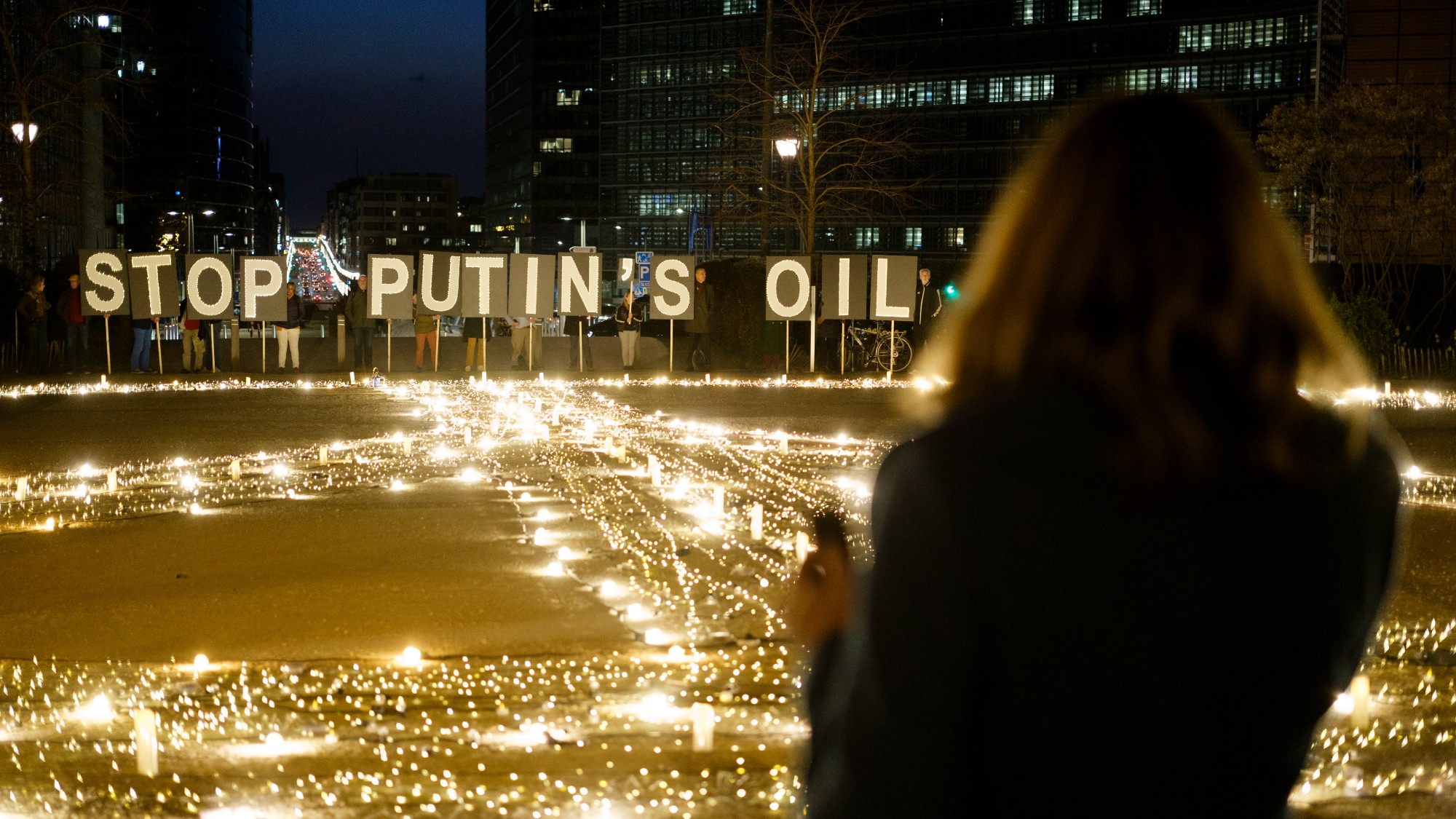 Is the EU funding Russia more than Ukraine?
Is the EU funding Russia more than Ukraine?The Explainer EU remains largest importer of Russian fossil fuels despite sanctions aimed at crippling Kremlin's war effort
-
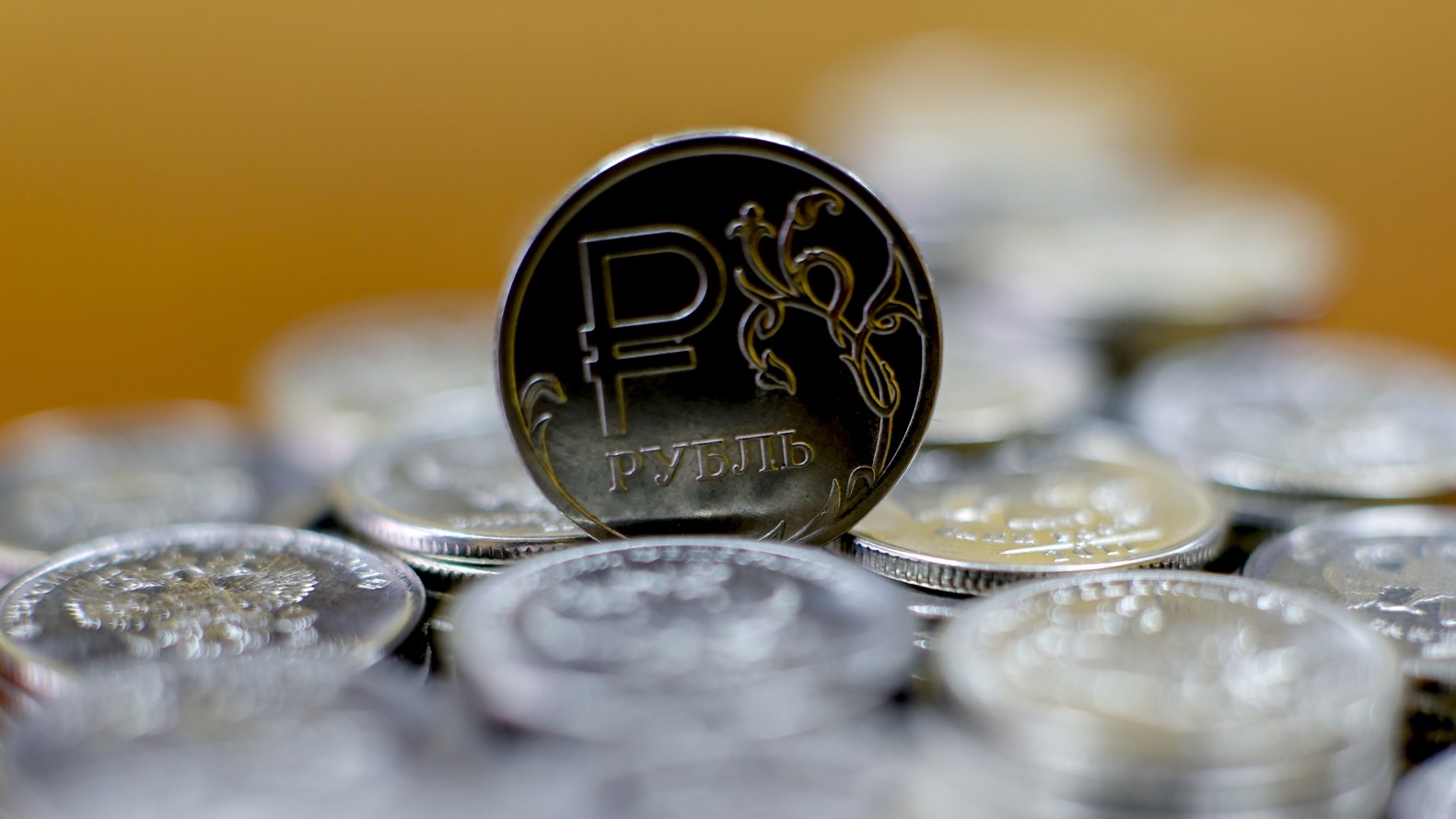 Russia's currency crisis as sanctions bite
Russia's currency crisis as sanctions biteThe Explainer Rouble plunges to lowest rate against dollar since invasion of Ukraine as economic toll finally begins to be felt
-
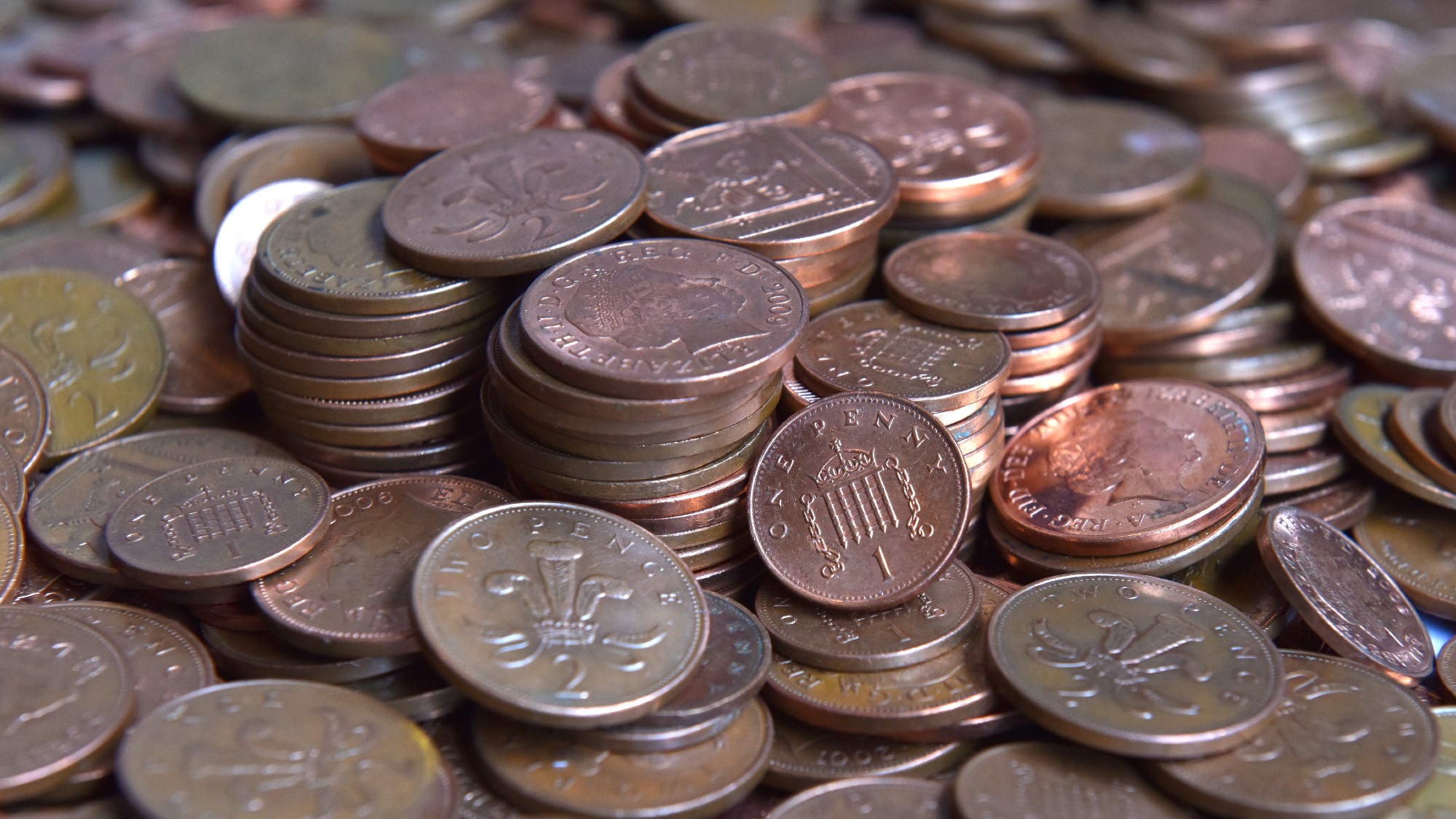 Copper coins: are they doomed?
Copper coins: are they doomed?Talking Point Treasury says no new 1ps and 2ps needed due to declining use – but would we really miss them?
-
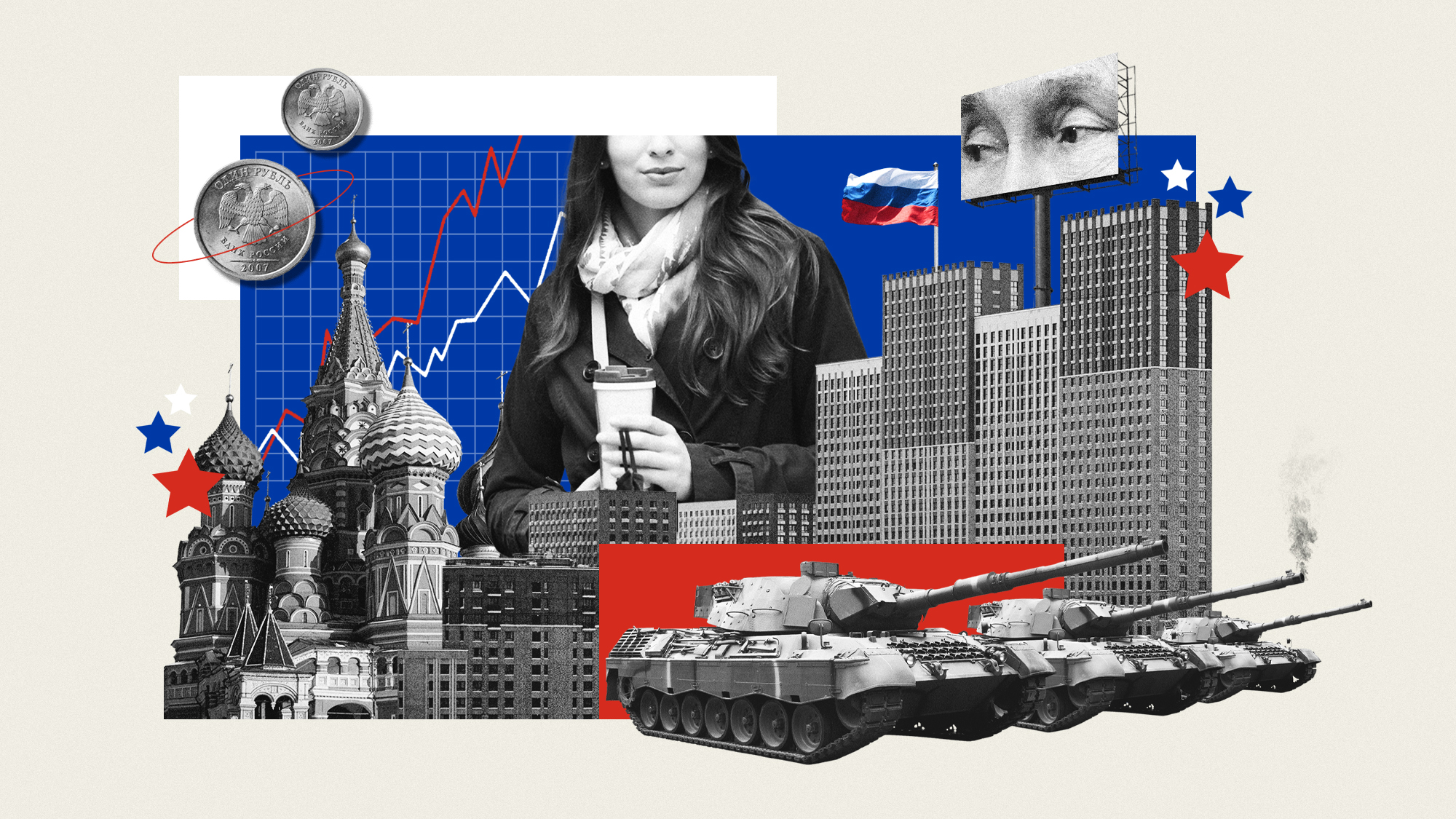 Has life in Russia regressed since the Ukraine invasion?
Has life in Russia regressed since the Ukraine invasion?Today's big question The 'war economy' has defied Western sanctions as ordinary citizens rally round the regime
-
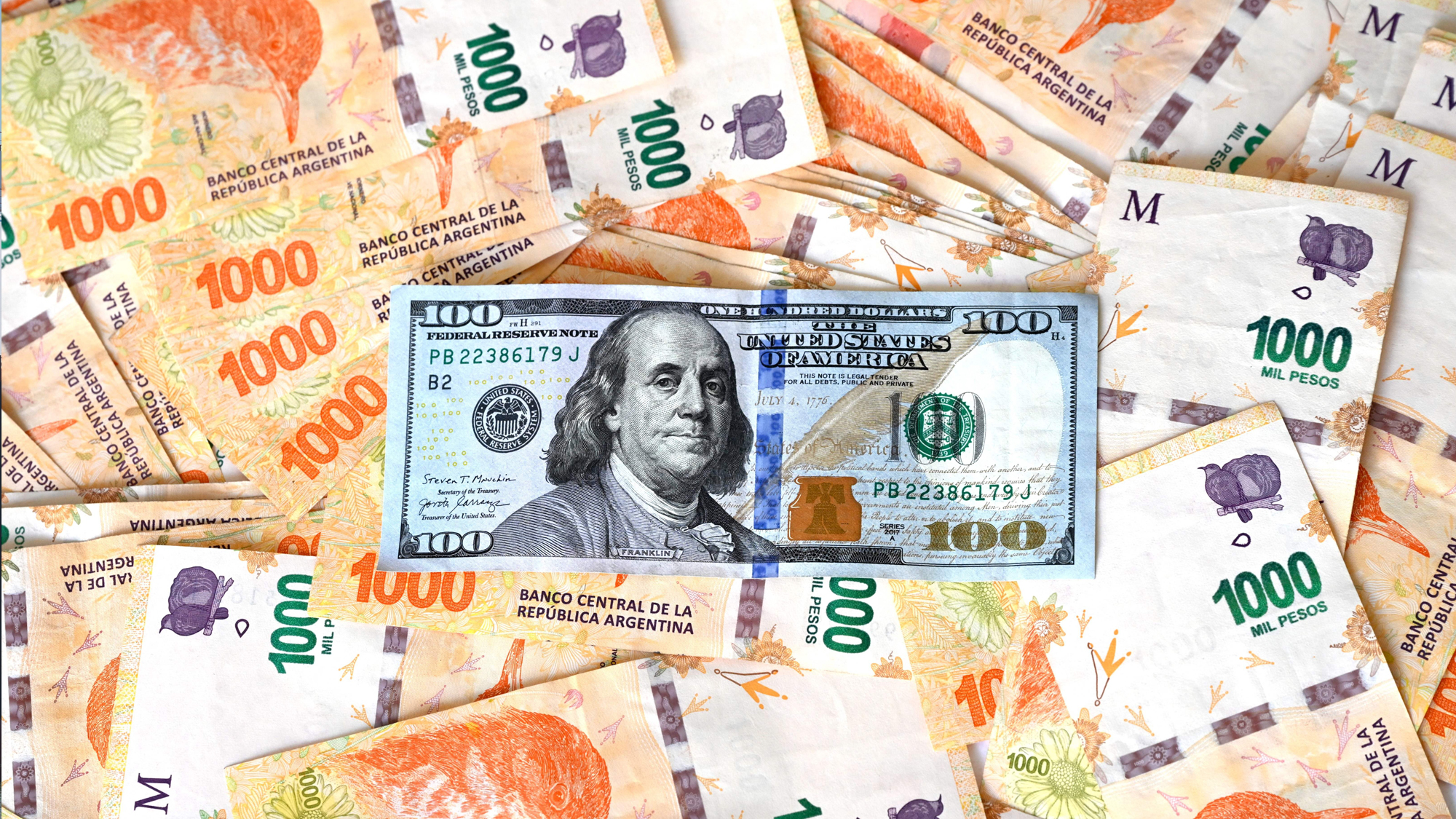 Currency: the long reign of the mighty dollar
Currency: the long reign of the mighty dollarFeature Argentina is planning to drop the peso in favor of the US dollar